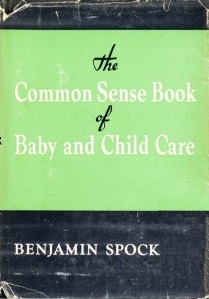Dr. Spock
Listen to the Recess! Clip
| Author | John Cech |
| Air Date | 5/2/2000 |

Dr. Spock Transcript
Dr. Benjamin Spock was born today in 1903, in New Haven, Connectict, into a solidly conservative New England family. An ironic beginning, perhaps, for a man who would be demonized during the 1960s and 70s, and blamed for having popularized the “permissive” child-rearing principles that had released a generation of protesting young people into the streets during the social upheavals of those decades. Norman Vincent Peale accused Spock of a philosophy of excess that had, in essence, ignited these culture wars: “Feed ’em whenever they want, never let them cry, satisfy their every desire.” And it only added fuel to the fire that Spock–the tall, affable, former champion Olympic rower and navy veteran–was in the vanguard of some of these protest marches–against the war in Vietnam and nuclear proliferation, claiming with his blunt Yankee directness: “there’s no point in raising children if they’re going to be burned alive.”
Those who actually chose to read his immensely popular child rearing books that have sold nearly 50 million copies worldwide–beginning with his 1946 best-seller, The Common Sense Book of Baby and Child Care–found someone who tried to provide parents a balanced alternative to the harsh disciplinary practices that were the rule in pediatric advice-giving in the first four decades of the century. Spock challenged earlier child-rearing advice like locking a child into his room if he got up too often before going to bed, or refusing to comfort a child if she was crying uncontrollably. “I didn’t want to encourage permissivenes, but rather to relax rigidity”–was Spock’s reply to the attacks from critics like the late vice president, Spiro Agnew, who, ironically, as we all remember had his own permissiveness issues. Spock, instead, counseled a wise middle ground–not to pick up a child whenever she whimpered, but also not to let him wail, unconsoled, for hours. Only the parents’ common sense could tell them what was ultimately most appropriate. That form of parental empowerment was exactly Spock’s point–and, in the end, it was a remarkably conservative point.
When Spock passed away, at the age of 94, in 1998, he had effectively transformed the ways that we think about parenting. Perhaps his skeptical New England mother should have the last word. “Why Benny,” she is reported to have said upon reading that first, landmark book, “it’s really quite sensible.”